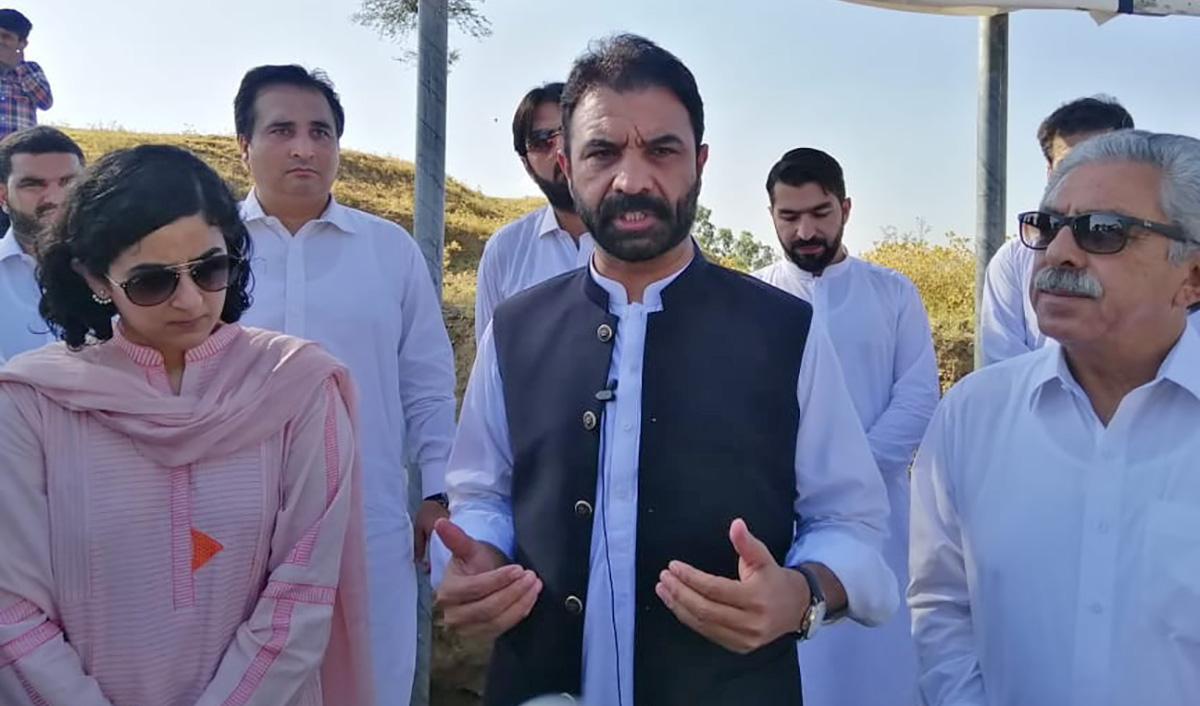PESHAWAR: Northwestern Khyber Pakhtunkhwa province will finalize in October the masterplan for Pakistan Digital City, which it expects to serve as a hub for high technology, innovation, and create thousands of new jobs in the high-tech sector, officials told Arab News.
Pakistan Digital City will be located in Haripur district of Khyber Pakhtunkhwa, a province which for years was a site of militancy and military operations and only in the recent past regained stability. While connectivity and Internet access still remain a problem in the province, its government in 2018 launched the “Digital KP” strategy aiming at job creation for youth in the digital economy.
Advisor to CM #KhyberPakhtunkhwa on Science & Technology @ZiaBangashPTI sheds light on the upcoming #Pakistan Digital City project, expected to generate thousands of new jobs at about 20 various high-tech operations. || @IMMahmoodKhan
–
Read special by: https://t.co/jfwvrm8ZZ9 pic.twitter.com/3OKXfkbBCQ— Arab News Pakistan (@arabnewspk) August 17, 2020
“The master planning and designing will be finalized by the end of October this year,” Zahoor Shah Marwat of the Khyber Pakhtunkhwa Information Technology Board told Arab News on Friday.
He added that nearly 4.5 hectares of land had already been allotted for the project and more will be procured when it expands. Private investors will be allowed to lease land.
According to Ziaullah Bangash, information technology adviser to the Khyber Pakhtunkhwa chief minister, 70 percent of the land for the development had already been fenced off.
“Potential investors, including software houses, technology incubators, electronic manufacturers, mobile, computer and communications equipment manufacturers will be invited to establish their facilities,” he told Arab News.

Ziaullah Bangash, information technology adviser to the Khyber Pakhtunkhwa chief minister, center, visits the site of Pakistan Digital City in Haripur, Khyber Pakhtunkhwa on June 24, 2020. (Photo courtesy of KP Information Technology Board via AN)
The hub, he added, is expected to generate some 30,000 new jobs at about 20 various high-tech operations — ranging from software manufacturers to hardware factories.
IT sector players say the digital city — if it materializes — would trigger an “IT revolution” in the country by giving its talent space and opportunity to flourish.
“Currently, the government has no job opportunities for thousands of computer science graduates who complete their higher studies in IT at the country’s universities,” Aftab Jahan, an IT expert and owner of Elite Technology Abbottabad, told Arab News.
Nabila Naeem, assistant professor of computer science at Islamabad Model College for Girls, said that despite qualifications, her students hardly ever are able to find jobs in their field.
“My students often ask me what will be their future after graduation and receiving degrees in IT and computer science? The digital city will offer opportunities to our young professionals to get experience and demonstrate their skills,” she said.












